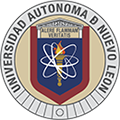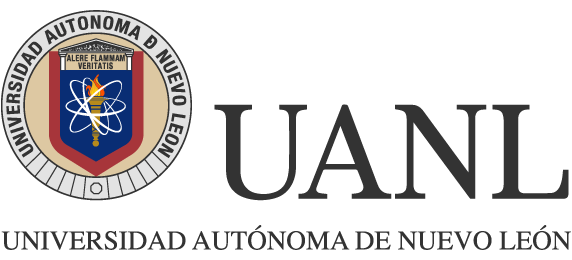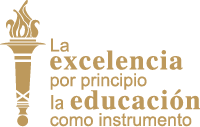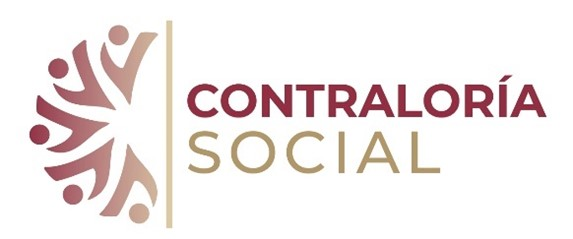Share:
B.s. in Forest Engineer
School of Forestry
Admission profile
Applicants to this academic program must have the following qualities:
• Interest in pursuing a career in forest engineering.
• Respect for nature and the environment.
• Basic knowledge of biology, ecology, and sociology.
• Ability to synthesize ideas and process data.
• Communication and organizational skills.
• Logical thinking.
• Openness to socialize.
• Teamwork and problem-solving skills.
• Willingness to carry out fieldwork.
• Tolerance of social and cultural diversity.
• Concern about environmental problems.
• Strong ethics and morals.
Admission requirements
Academic
Have successfully completed high school or equivalent studies.
Legal
Meet all criteria established by UANL's current standards and procedures.
Testing
Take the Admission Test EXANI-II, established by the National Center for the Evaluation of Higher Education (CENEVAL).
Program-specific
Meet all criteria established by the current standards and procedures of the School of Forestry.
Graduation profile
Purpose:
To educate forest engineers who design, implement, assess, as well as supervise sustainable forest production and conservation projects, taking into account the economic and cultural needs of the region where they will practice. They will participate as leaders in multidisciplinary teams and make proposals for better forest resource management. Our graduates will be autonomous and critical to stay positive in changing environments and have an ethical commitment to social problems.
General skills
Instrumental skills
1. Following self-learning strategies at the different levels and fields of knowledge, which enables effective decision-making in personal, academic, and professional areas.
2. Using logical, mathematical, iconographic, verbal, and non-verbal language for the ecumenical interpretation and expression of ideas, feelings, and theories.
3. Employing information and communication technologies for accessing information that eventually becomes knowledge as well as promoting learning and collaborative work through innovative techniques, having a constructive involvement in society.
4. Mastering the mother language in spoken and written form, learning to communicate correctly and adapt messages to specific contexts in order to disseminate ideas and scientific knowledge.
5. Analyzing natural events and social movements through creative logical thinking in order to propose relevant decisions according to social responsibility and the graduate’s own professional field.
6. Speaking a second language, especially English, for proper communication in common, academic, professional, and scientific settings.
7. Making academic and professional proposals based on the best global practices in different disciplines to encourage collaborative work.
8. Applying new and traditional research methodologies for personal development and knowledge generation.
Personal and interpersonal skills
9. Committing to cultural and social diversity while complying with the integration principle to promote spaces of harmonious coexistence for local, national, and international contexts.
10. Facing emerging social challenges with a critical approach and academic-professional commitment in order to consolidate the general wellbeing as well as sustainable development.
11. Practicing UANL values in personal and professional settings: truth, equity, honesty, freedom, solidarity, respect for life and others, peace, respect for nature, integrity, ethics, and justice, contributing to a sustainable society.
Consolidating skills
12. Making innovative proposals based on a holistic understanding of reality to help overcome global challenges.
13. Taking a dedicated leadership in encouraging significant changes to fulfill social and professional needs.
14. Solving problems in academic and professional areas through specific techniques for proper decision-making.
15. Adapting easily to uncertain social and professional environments to have better living conditions.
Specific skills
1. Solving environmental and forest resource problems to reduce the impact of anthropogenic activities.
2. Assessing forest resource management to make proposals according to physical, biological, economic, and social indicators.
3. Proposing action plans for optimal forest resource utilization that does not affect any ecological process involved.
4. Leading public policies to develop forest programs, considering the ecological, economic, political, and cultural contexts.
5. Applying technology to evaluate forest resources in terms of their distribution and geographic extent.
6. Mapping forest lands by means of aerial photography and satellite imagery.
7. Diagnosing phytosanitary issues at early stages in order to propose strategies of pest and disease control to preserve forest health.
8. Proposing prevention and fighting strategies for wildland fires to mitigate their effects on ecosystems, taking into account the topography and vegetation of the forests affected.
9. Restoring forests according to their physical and biological characteristics for reinstating their ecological processes and productivity.
10. Assessing forest environmental services to develop financial compensation projects through national and international payment programs.
11. Planning as well as taking protection and preservation actions on forest soils to mitigate the effects of desertification.
12. Administering the Wildlife Management Units (UMAs) for sustainable hunting or conservation purposes.
13. Creating forest management plans in order to provide producers and owners with tools for the sustainable utilization of forest resources.
14. Establishing and administering companies to supply and process timber forest products, using innovative technology for optimal utilization.
15. Establishing and administering plant nurseries to produce quality vegetation for ecosystem restoration, urban landscaping, and the wood industry, using traditional techniques as well as cutting-edge technology.
16. Optimizing timber and non-timber forest product processing to ensure full utilization of raw materials and increase profits.
17. Designing urban reforestation strategies with low water use native plants and based on urban landscaping principles in order to improve people’s life quality.
18. Providing technical services such as carrying out technical justification studies, writing environmental impact manifestos, creating forest management plans, and establishing Wildlife Management Units.
| Areas | Jobs |
|---|---|
| Government institutions involved in natural resource conservation, legislation, and management; educational institutions; private consulting firms | Design, implementation, assessment, and supervision of sustainable forest production projects. Development of forest resource conservation and protection programs. |
Graduation requirements
Academic
Have completed the 213 total credits of the academic program.
Have concluded the academic program in a minimum of 9 semesters or a maximum of 18 semesters.
Have carried out the mandatory learning service.
Master a second language other than Spanish.
Legal
Meet all criteria established by UANL's current standards and procedures.
Program-specific
Attend the swearing-in ceremony.
Accreditations
National
Name
CIEES Level 1
Accreditor
Interinstitutional Committees for the Evaluation of Higher Education
Accreditor's acronym
CIEES
http://www.ciees.edu.mxNational
Name
Accreditors that belong to the Council for the Accreditation of Higher Education (COPAES)
Accreditor
Mexican Committee for the Accreditation of Agronomic Education
Accreditor's acronym
COMEAA
http://comeaa.org/Validity of accreditation
May 29th, 2019
Location
Posted by: Dirección del Sistema de Estudios de Licenciatura




